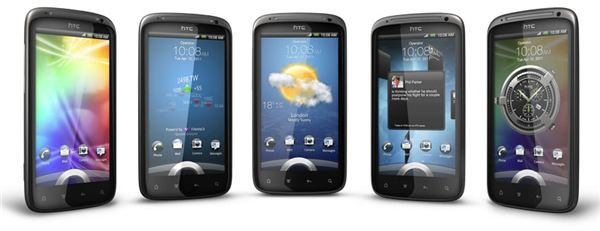A Guide to Android Phone Bootloaders: The Core of Android Customization
The Very Core of Android Customization
Ever since the operating system has been released, Android has attracted a more tech-savvy crowd of users who like the level of customization it offers. The open character of Android has lured many users in, helping the platform as a whole increase its market share at a pace that nobody could have predicted. But what is it really that makes Android ‘open’ and unique?
One of the core principles of the mobile OS is that you can basically do anything with it, which includes ‘rooting’ and the installation of custom ROMs. Although it may in some cases void the warranty, users like to fiddle around with their devices for a variety of reasons. Many manufacturers like to load up their Android devices with a custom overlay, of which HTC Sense is a good example, and some users want to use a different version altogether. Others just want to improve on what is offered and some want to be able to overclock or undervolt their hardware.
Whatever the purpose, getting your Android device to play nice with customization will require the ‘bootloader’ to be unlocked. We explain what the bootloader is, how it behaves and what the consequences are of a locked down bootloader, which is the case with some devices.
What are Android Phone Bootloaders?
Bootloaders are the very basis of your phone in terms of being able to start up in the ROM that is installed (whether original or custom). In a sense, and although technically not 100 percent correct, it is to your phone what the BIOS is to your computer. Bootloaders are the very first thing that starts up on your device when you turn it on and are generally unaffected by whichever ROM you want to load. When developing a custom ROM, developers therefore have to make sure that the bootloader recognizes their ROM so that it can point your phone in that direction. This can only happen properly if the bootloader is ‘open’.
Bootloaders are entirely device specific, although similar models from the same producer will have similar bootloaders. Therefore there is no single instruction available that will unlock an Android bootloader. As mentioned before, some cell phone producers do not like their devices to be changed in any way and decide to lock down the bootloader altogether. Effectively this will result in the device being only usable in the original setup, where rooting or customization is a thing of the past. Naturally, in most cases developers will be able to circumvent the obstacles, although even for them there is a big difference between a locked and open (and therefore unlockable) bootloader.
A good example of an Android cell phone brand that likes to protect its creation is HTC. For a while the company decided to lock down their phones, which led to devices such as the ‘Sensation’ coming with a secured bootloader.
Why Do Companies Like HTC Lock Down Their Bootloader?
You might wonder why certain phone manufacturers decide to prohibit customization of their custom software platform. After all, Android was meant to be the one smartphone platform that was completely open and accessible to everyone. The answer lies in the fact that producers do not always translate this principle to the end product. As most of these producers provide a custom version of Android, they want to protect their creation. On top of that, the only method of guaranteeing a solid user experience is to keep the original software. Obviously, the quickest and most practical way of ensuring this is to lock down the bootloader.
More recently, HTC announced a change to the policy regarding bootloaders and strong rumors suggest that the Sensation will indeed be ‘opened up’ through a software update. Although most regular users might not be bothered with rooting their devices there is a large group of potential clients who will avoid handsets with locked bootloaders. Apparently this group is so significant that HTC decided to let go of its policy altogether.
The effective result will obviously be that HTC devices will, from now on, be a lot more hack-friendly, easy to root and customize. People who buy one of these devices can go ahead and choose from the custom ROMs that are available without worrying too much about breaking the phone or doing something with it that it was not intended for. Although unlocking the bootloader will still effectively void the warranty, resetting it to the original state will reinstate the lock, making it virtually impossible for the producer to trace a breach in that field.
Although ‘playing’ with your Android installation is not for the faint-hearted, open bootloaders is essentially what the platform stands for. When Android devices stop being customizable, the platform will lose some of its appeal, which could put off a lot of potential buyers. Luckily, companies like HTC realized this and decided to restore their devices to be true Android phones!
References
- HTC Opening Bootloader, HTC Facebook, https://www.facebook.com/HTC/posts/10150307320018084
- What is Booloader and How to Unlock Bootloader on Android Phones, AddictiveTips, https://www.addictivetips.com/mobile/what-is-bootloader-and-how-to-unlock-bootloader-on-android-phones-complete-guide/
- Image by HTC, https://www.htc.com/uploadedImages/WWW/Product/HTC_Sensation/image5.jpg
